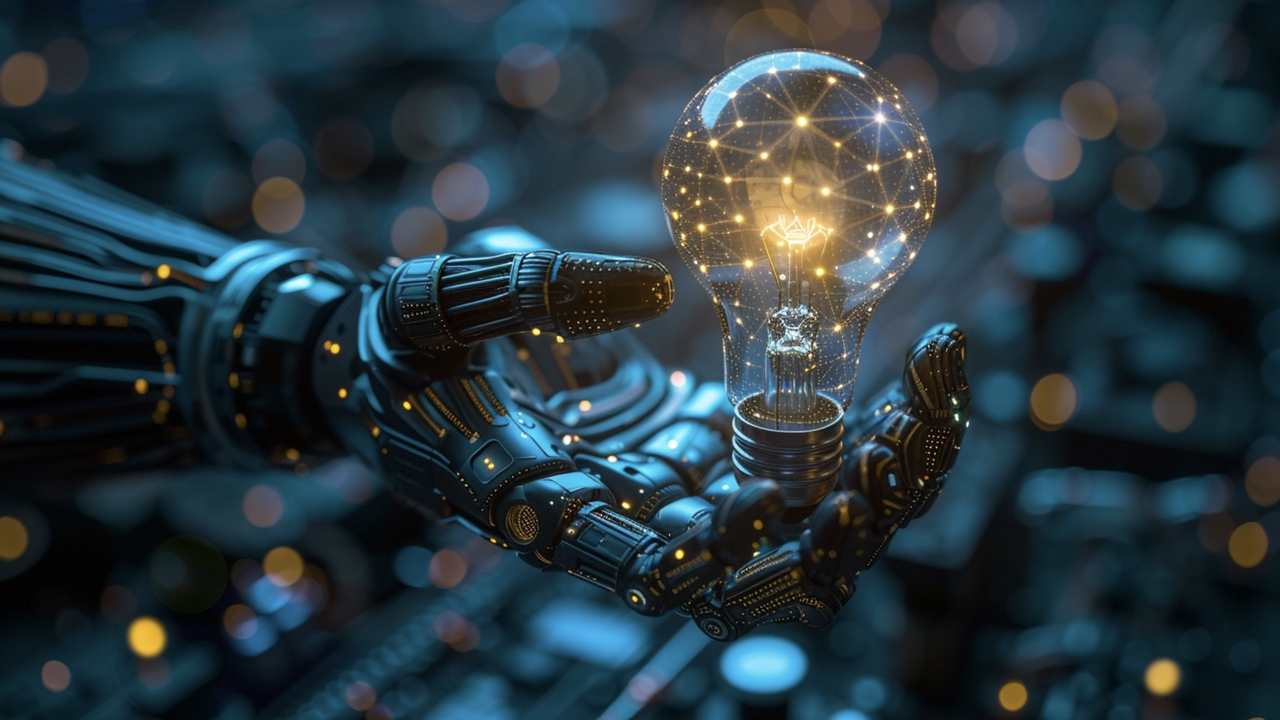Role of Artificial Intelligence in Energy Management and Optimization
This article delves into the transformative role of Artificial Intelligence (AI) in energy management and optimization, exploring how AI technologies are revolutionizing the way we produce, distribute, and consume energy. It highlights the efficiency gains, sustainability impacts, and future prospects of integrating AI into energy systems.

In the quest for sustainability and efficiency, the energy sector stands on the cusp of a revolution, powered by Artificial Intelligence (AI). As we navigate the twin challenges of rising energy needs and the pressing imperative to cut down carbon emissions, Artificial Intelligence stands out as a glimmer of hope. Through its ability to analyze vast datasets, predict trends, and automate complex decision-making processes, AI is transforming the landscape of energy management and optimization. This article explores the pivotal role of AI in reshaping how energy is harnessed, delivered, and utilized, marking a new epoch in the pursuit of a more sustainable and efficient energy future.
The AI Revolution in Energy Production
At the heart of energy production, AI technologies are making renewable sources more viable and efficient. By accurately predicting weather conditions, AI enhances the reliability of solar and wind energy, enabling operators to maximize output and integrate these resources more effectively into the energy mix. Machine learning algorithms can forecast solar irradiance and wind speeds with remarkable precision, ensuring that renewable energy production aligns closely with demand patterns.
Moreover, AI contributes to the optimization of traditional energy plants. Through predictive maintenance, AI algorithms analyze data from sensors embedded in equipment to anticipate failures before they occur, minimizing downtime and extending the lifespan of infrastructure. This not only reduces operational costs but also improves the overall safety and efficiency of energy production.
Revolutionizing Energy Distribution with Smart Grids
AI's influence extends to the distribution of energy, where it is pivotal in the development and operation of smart grids. These advanced grid systems leverage AI to balance supply and demand in real-time, incorporating renewable energy sources, managing peak loads, and reducing energy wastage. Through machine learning, smart grids can predict consumption patterns, automatically adjust to changing conditions, and even self-heal by rerouting power during outages. The result is a more resilient, efficient, and sustainable energy distribution network that can adapt to the evolving needs of consumers and the environment.
Transforming Energy Consumption
On the consumption side, AI enables households and businesses to optimize their energy use, leading to significant savings and reduced environmental impact. Smart thermostats and energy management systems learn from user behaviors and external factors like weather conditions to adjust heating, cooling, and lighting efficiently. These systems can identify opportunities for energy savings, automatically implementing changes without compromising comfort.
Furthermore, AI plays a crucial role in the electrification of transportation. Electric vehicles (EVs), integrated within smart grids, can be charged during off-peak hours, balancing the grid and utilizing excess renewable energy. AI algorithms optimize charging schedules based on usage patterns and grid conditions, enhancing the efficiency of EV operations and supporting the transition to cleaner transportation options.
Challenges and Opportunities Ahead
Even with its promising potential, incorporating AI into energy management and optimization doesn't come challenge-free. Issues related to data privacy, cybersecurity, and the need for substantial investments in technology and infrastructure pose significant hurdles. Additionally, the success of AI in energy systems depends on the availability of high-quality, comprehensive data sets and the development of robust algorithms that can adapt to the dynamic energy landscape.
Yet, the opportunities outweigh these challenges. AI's ability to enhance energy efficiency, support renewable energy integration, and contribute to the decarbonization of the economy is unparalleled. As AI technologies continue to evolve, they promise even greater advancements in energy storage, demand response, and the creation of decentralized energy systems where consumers can produce, store, and sell energy back to the grid.
Conclusion: A Brighter, AI-Powered Energy Future
The role of Artificial Intelligence in energy management and optimization is transformative, heralding a new era of efficiency, sustainability, and resilience in the energy sector. By harnessing the power of AI, we can unlock new possibilities for managing our energy resources more wisely, reducing our carbon footprint, and paving the way for a sustainable energy future. The journey ahead is complex and fraught with challenges, but the potential rewards for our planet and future generations are immense. As we continue to explore and innovate, the vision of an intelligent energy system, powered by AI, becomes not just a possibility, but an imperative in our collective quest for a more sustainable world.
ALSO READ
India adds record 18 GW renewable energy capacity in FY24
Apple, Cleanmax form renewable energy JV in India, deploys solar solutions at 6 locations
EIB provides €150M in financing for renewable energy investment in Bhutan
IREDA's GIFT city office to spearhead green hydrogen and renewable energy manufacturing projects
Leading renewable energy player, Grew Energy, secures major contract to provide 200 MW solar equipment










